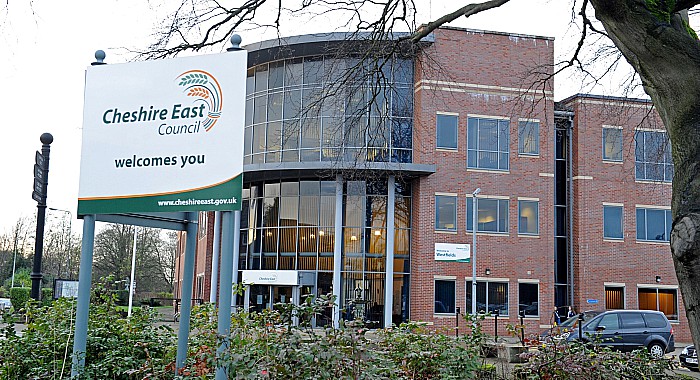
Cheshire East has rubber stamped a council tax rise of 2.99% during a heated debate at budget meeting, writes Belinda Ryan.
The ruling Labour/Independent group said they had produced a balanced budget and highlights included an extra £19m being ploughed into highways maintenance over the next three years.
The Conservatives had planned to put through an amendment to lower the council tax increase by 1%, but said they had been denied the opportunity because of a change in the constitution requiring three days’ notice.
The increase will mean Cheshire East’s share of the council tax bill rise from £1,579.03 to £1,626.24 for a Band D property.
When the police and fire service precepts are added, the combined annual Band D council tax bill will be £1,944.16 plus the parish council element, which varies for each town.
Deputy leader Craig Browne (Ind) told the meeting the funding cut from central government over the past years had had a massive impact on Cheshire East.
“The revenue support grant from central government which, as recently as 2014/15 was worth £56.9m to Cheshire East, has been either zero or very close to zero since 2019/20,” said Cllr Browne.
He said when the Tories had run Cheshire East, they put the council tax up by 5.99% in 2018/19, at a time when the rate of inflation was just 2.5%.
“Not only was it an inflation-busting increase, but it also occurred during a year when this council was still in receipt of £5.4m of revenue support grant from the government,” he said.
“What a contrast to the proposals before us, practically zero revenue support grant and council tax increase well below inflation.”
Macclesfield councillor Nick Mannion (Lab) said in real terms 2.99% represented a cut in council tax, with the inflation rate being 5%.
Council Leader Sam Corcoran (Lab) pointed out two thirds of the council’s budget is spent on social care “and this budget includes increases in children’s services and an extra £4m a year on adult social care”.
Nantwich councillor Arthur Moran (Ind) said the government had shifted its responsibility for social care “and put it on the council tax increase and that means that we get the blame for the high increases in council tax, which is totally wrong”.
The Conservatives referred to £8 million of medium term financial strategy (MTFS) reserves – which is separate from the £11.5m general reserves the council holds.
Group leader Janet Clowes (Wybunbury) said they had prepared a budget amendment to use some of the MTFS reserves, together with unexpected additional funding through the local government settlement, to cut the council tax rise by 1%.
Cllr Jos Saunders (Poynton, Con) reminded the administration the MTFS reserves belonged to the residents, not the council.
“People will have to make some hard decisions about heating and food,” she said.
“The impact will be felt even more adversely by our vulnerable residents and families, so why is this council sitting on millions of residents’ money in an MTFS reserve fund?
“This is their money, it’s not ours to fritter on vanity projects.
“Now is the time, surely, to invest some of that reserve money in early help and mitigation for those who are struggling.”
Knutsford councillor Tony Dean (Con) said residents were about to be hit by a “tsunami of extra costs”.
“£2.4m is 1% on the council tax, we have an £8m MTFS reserve.
“It’s an absolute utter nonsense to be asking our residents to pay an unnecessary 1% rise over and above what we could be asking and should be asking at this particular time,” he said.
He was later asked by the mayor to modify his language for a term he used in relation to the ruling administration.
But Wilmslow councillor Mark Goldsmith (Ind) hit back, saying the MTFS reserve was needed to mitigate risk and, referring to Russia’s invasion of Ukraine, he said: “Today the world got a lot riskier and we need that money to manage the risk going forward.”
The budget and the council tax increase were approved. The Conservatives voted against both.


















Cheshire East has approved the building of thousands of new homes across the region. New homes are expensive and will attract significant council taxes. I estimate that for every thousand new homes this will bring in approximately £2,000,000 of revenue for the council. With this massive revenue stream, why does the council need to increase taxes?